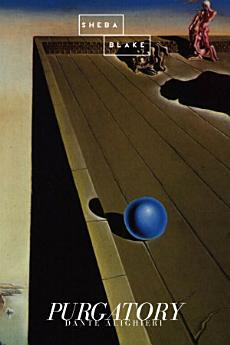Purgatory
04.2017 г. · Sheba Blake Publishing
Електронна книга
126
Страници
family_home
Отговаря на условията
info
reportОценките и отзивите не са потвърдени Научете повече
Всичко за тази електронна книга
In Roman Catholic theology, Purgatory is an intermediate state after physical death in which some of those ultimately destined for heaven must first "undergo purification, so as to achieve the holiness necessary to enter the joy of heaven," holding that "certain offenses can be forgiven in this age, but certain others in the age to come." And that entrance into Heaven requires the "remission before God of the temporal punishment due to [venial] sins whose guilt has already been forgiven," for which indulgences may be given which remove "either part or all of the temporal punishment due to sin," such as an "unhealthy attachment" to sin. Only those who die in the state of grace but have not yet fulfilled the temporal punishment due to their sin can be in Purgatory, and therefore no one in Purgatory will remain forever in that state nor go to hell. The notion of Purgatory is associated particularly with the Latin Rite of the Catholic Church (in the Eastern sui juris churches or rites it is a doctrine, though it is not often called "Purgatory", but the "final purification" or the "final theosis"); Anglicans of the Anglo-Catholic tradition generally also hold to the belief. Eastern Orthodox Churches believe in the possibility of a change of situation for the souls of the dead through the prayers of the living and the offering of the Divine Liturgy, and many Orthodox, especially among ascetics, hope and pray for a general apocatastasis. Judaism also believes in the possibility of after-death purification and may even use the word "purgatory" to present its understanding of the meaning of Gehenna. However, the concept of soul "purification" may be explicitly denied in these other faith traditions. The word Purgatory has come to refer also to a wide range of historical and modern conceptions of postmortem suffering short of everlasting damnation, and is used, in a non-specific sense, to mean any place or condition of suffering or torment, especially one that is temporary.
Оценете тази електронна книга
Кажете ни какво мислите.
Информация за четенето
Смартфони и таблети
Инсталирайте приложението Google Play Книги за Android и iPad/iPhone. То автоматично се синхронизира с профила ви и ви позволява да четете онлайн или офлайн, където и да сте.
Лаптопи и компютри
Можете да слушате закупените от Google Play аудиокниги посредством уеб браузъра на компютъра си.
Електронни четци и други устройства
За да четете на устройства с електронно мастило, като например електронните четци от Kobo, трябва да изтеглите файл и да го прехвърлите на устройството си. Изпълнете подробните инструкции в Помощния център, за да прехвърлите файловете в поддържаните електронни четци.








